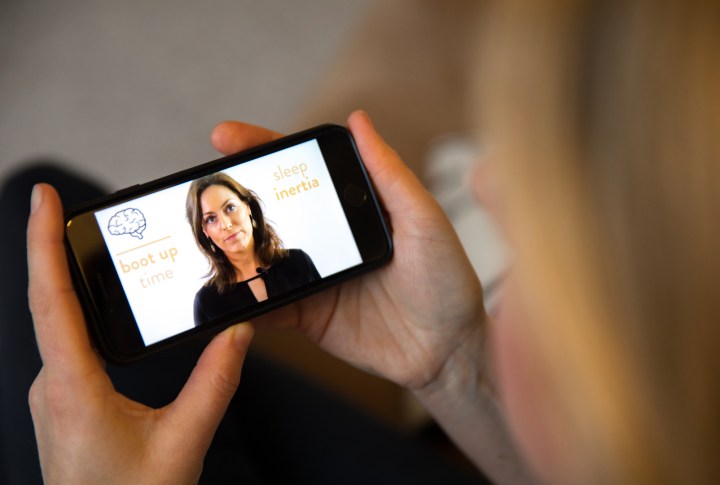
Debuting at CES, Amsterdam-based Shleep held its own against a raft of sleep-related apps and technologies ranging from to a four-part system that includes a visor, a cream, and neuroacoustic software.
Instead of gadgets and gizmos, the Shleep app offers a cool, comforting interface featuring company mascot “Shleepy,” but it’s one built around a philosophy involving understanding and behavior change. In short, the company believes the better a person understand that certain behaviors lead to disturbed sleep and increased risk of disease, the easier it is for them to change their behavior.
Once a user opens the app, users see a questionnaire after a short animated introduction. After viewing the video, users can respond to questions about their age, screen time, lifestyle and sleeping habits. Then the app builds a tailor-made program that sets out to improve that person’s individual sleeping habits including mindful relaxation exercises and detaching from technology. The information is presented in a series of videos, combined with targeted exercises.
“The mission of Shleep is the help the world sleep better — and it is also my personal mission,” said Dr. Els van der Helm, the founder and CEO of Shleep. “I dream of making a measurable contribution to a more harmonious society with energetic people who feel good about themselves.”
In addition to helping individual users through their new app, Shleep also provides digital training, personalized assessments, tailored workshops on sleep health, individual and group consultants and policy recommendations to improve health, leadership, effectiveness, and engagement.
Sleep is a major problem in the modern age, so it’s no wonder so many companies are producing products and apps tailored to better sleep. More than one-third of American adults sleep less than seven hours a night during the work week, and Allied Market Research values the global sleep market at nearly $80 billion by 2022. But that is a drop in the bucket compared to the $411 billion per year in lost productivity due to sleep deprivation.
The issues around sleep devices are so prevalent that the National Sleep Foundation recently requested that monitoring companies create a set of standards so that consumers can decipher the information being collected.
The problem has increased in recent years due to a number of quantitative factors, not least consumers’ use of technologies at night and in the bedroom. It’s well documented that the lighting coming off most digital devices has a negative impact on a user’s ability to fall asleep. Add in stress, a media-rich environment, ample video platforms and the ever-present threat of FOMO (fear of missing out) and it’s no wonder so many of us remain wide-eyed at night.


